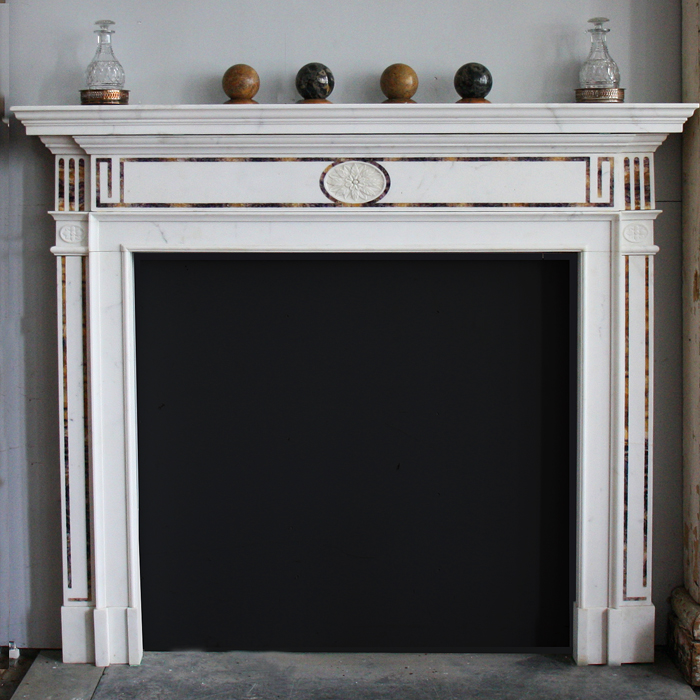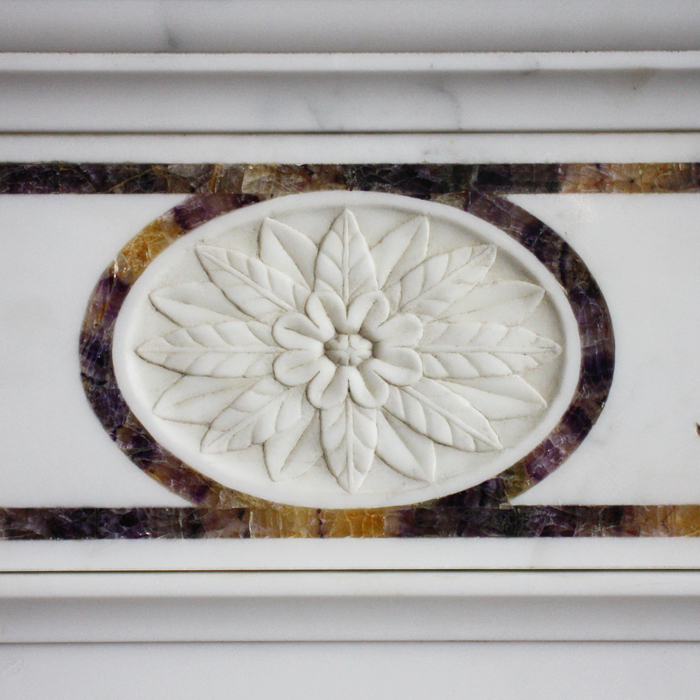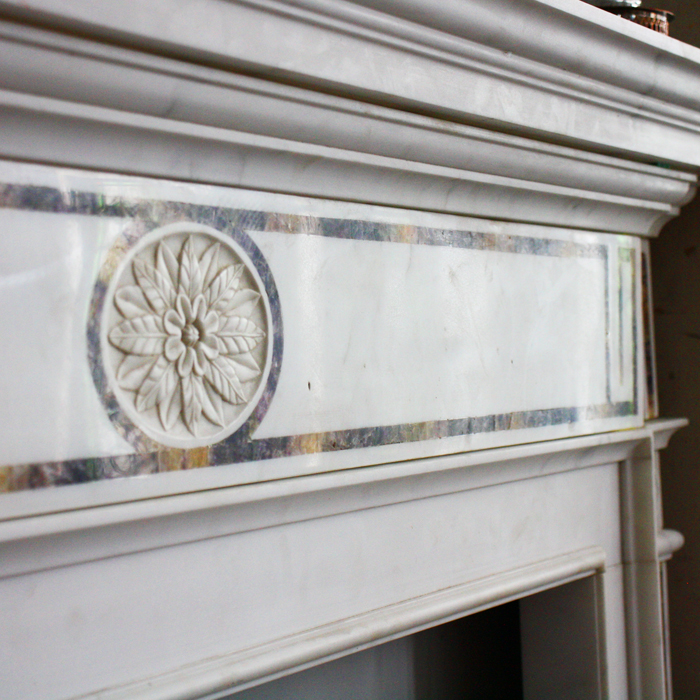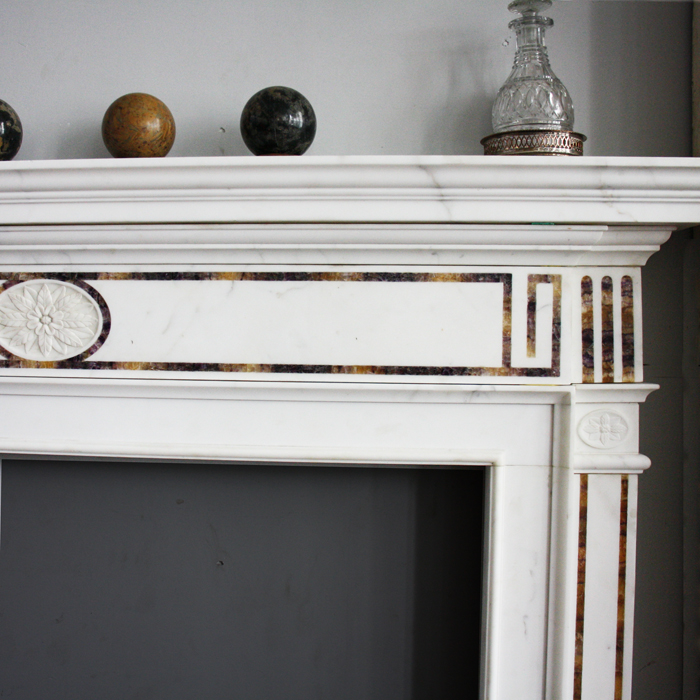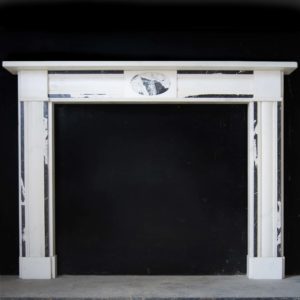Click and Collect – Please contact us to arrange collection or delivery of this item
An English Blue John inlaid white marble chimneypiece,
the rectangular shelf above the panelled frieze centred with an oval patera and inlaid with a string-course of Derbyshire fluorspar, terminating with conforming greek-key inlay to the end-blocks, the Blue John bands extending down the jambs, all raised on block feet,
£15,600
In stock
Blue John was first discovered by the Romans in Derbyshire, where it is still the only area in the UK that is known to find this rare material. At the same time that it was found, the Romans had developed their skills and machinery to polish and turn the material into the Blue John stone that it most commonly used for ornaments and artefacts. The Romans were discovered to have sold this material, evident by two vases that were made of this material found in Pompeii.
By the 19th Century, Blue John was highly demanded within the finest houses, including Buckingham Palace and Chatsworth House, to be used in ornaments and to be inserted in furniture and windows as decoration.
This material got to play a role in WW1 as its status as a rare form of calcium fluorite meant that it could used for supplies and machinery. The high demand of the material during this period gave it worldwide attention, but it caused the larger pieces that would be used for ornaments to be lost.
Today, the material is primarily used in jewellery.
Recently Viewed Items
-

Original magazine publicity posters,
£120 -
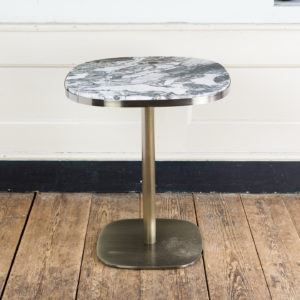
Brushed steel and marble restaurant tables,
-
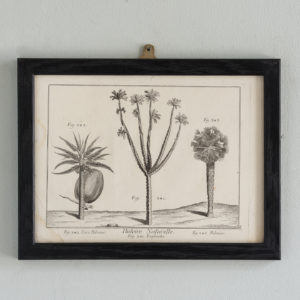
Histoire Naturelle
Histoire Naturelle
French natural history copper-engraving published 1777. 'Coco Palmier. Euphorbe. Palmier'. -
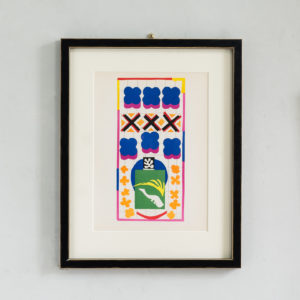
Henri Matisse, ‘The Last Works of Henri Matisse’
£900 eachHenri Matisse, ‘The Last Works of Henri Matisse’
From Verve Vol. IX No. 35/36 published by Tériade under the title 'The Last Works of Henri Matisse'£900 each

